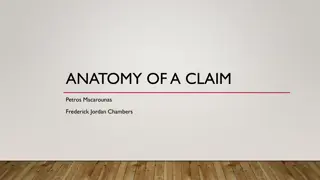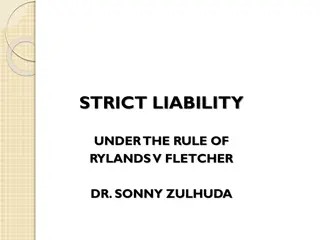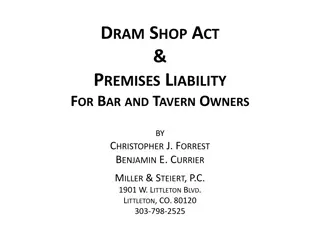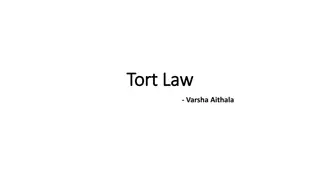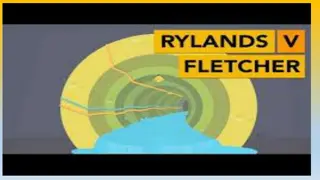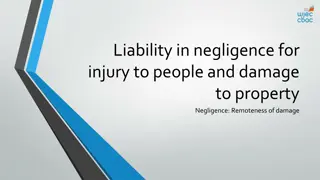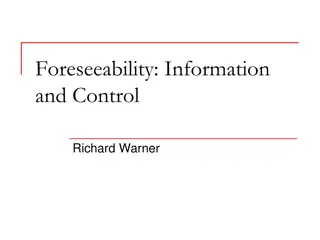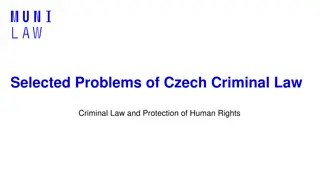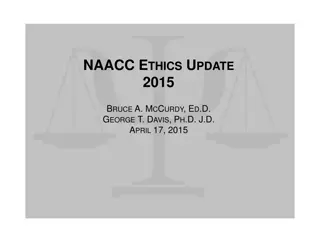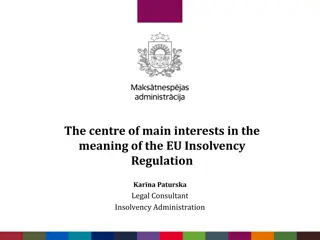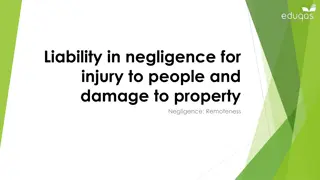Principles of Duty of Care and Civil Liability Act 2002 Explained
Understand the duty of care in legal claims, with insights from cases like Adeels Place v. Moubarak and Sullivan v. Moody. Learn practical guidance on pleading duty and explore key principles from the Civil Liability Act 2002, including foreseeability of harm and considerations for negligence.
0 views • 36 slides
Strict Liability under the Rule of Rylands v. Fletcher
Strict liability under the rule of Rylands v. Fletcher establishes that a person who brings something onto their land that is likely to cause harm if it escapes is responsible for any resulting damage, regardless of negligence. The case of Rylands v. Fletcher (1868) set the precedent for this doctri
0 views • 17 slides
Dram Shop Act and Premises Liability for Bar and Tavern Owners
Understanding the liabilities and responsibilities of bar and tavern owners under the Dram Shop Act based on the case of Build It and They Will Drink, Inc. v. Strauch. The act outlines exceptions where licensees can be held civilly liable for selling alcohol to minors or visibly intoxicated individu
0 views • 12 slides
Understanding Professional Duties in Accountancy
This informative content discusses various aspects of professional duties in accountancy, such as negligence, breach of duty of care, causation, asset valuation, and ethics. It covers topics like duty of care, foreseeability test, breach of duty standards, causation principles, and the accountants'
1 views • 10 slides
Understanding Tort Law: Elements and Examples
Tort law encompasses civil wrongs such as negligence, duty of care, proximity, and breach of duty. Through real-life examples like loud music disturbance, cycling accidents, and environmental pollution, one can grasp the importance of studying tort law. Explore the concepts of foreseeability, proxim
0 views • 16 slides
Land Tort Elements: Liability and Defenses
Key elements of tort law related to bringing onto land, foreseeability of mischief, requirement of escape, non-natural use, defenses like statutory authority and consent, as well as exemptions such as acts of God are explored through case law examples like Giles v. Walker and Rylands v. Fletcher.
0 views • 9 slides
Understanding Liability in Negligence: Tests for Remoteness of Damage
Explore the concept of legal causation in negligence cases with a focus on the tests for establishing remoteness of damage - Re Polemis & Furness, Withy & Co Ltd [1921] and Overseas Tankship (UK) Ltd v Mort's Dock and Engineering Co Ltd (Wagon Mound) (No. 1) [1961]. Discover the importance of reason
0 views • 12 slides
Liability Allocation and Information Control in Legal Cases
Explore the concept of foreseeability, liability allocation, and information control in legal cases through examples such as Hadley v. Baxendale and the Flood of 1992. The Best Cost Avoider Approach is analyzed along with scenarios involving contractors, telegraph companies, and movie companies. Und
0 views • 8 slides
Analysis of Criminal Law and Human Rights Interaction
Explore the complex relationship between criminal law and human rights, delving into limitations, foreseeability, and interaction in modern democratic states with a focus on the protection of individual and collective interests. The interplay between criminal liability and human rights is analyzed,
0 views • 20 slides
Ethical Dilemma: Duty to Warn and Protect in Confidentiality Limits
Explore the ethical complexities surrounding the duty to warn and protect within confidentiality limits, citing legal cases and expert insights. Turner v. Jordan highlights the balance of foreseeability and harm in establishing a duty of care.
0 views • 43 slides
Understanding the Centre of Main Interests in EU Insolvency Regulation
Centre of Main Interests (COMI) plays a crucial role in determining the jurisdiction for insolvency proceedings within the EU. This concept, defined by the Regulation 1346/2000, ensures that the debtor's administration of interests is ascertainable and objective, regardless of national legislation.
0 views • 9 slides
Understanding Liability in Negligence: Remoteness and Causation
Explore the concept of legal causation in negligence cases by delving into the tests for establishing remoteness. Dive into landmark cases like Re Polemis & Furness, Withy & Co Ltd. [1921] and Overseas Tankship (UK) Ltd v. Morts Dock and Engineering Co Ltd or (Wagon Mound) (No. 1) [1961] to understa
0 views • 12 slides
